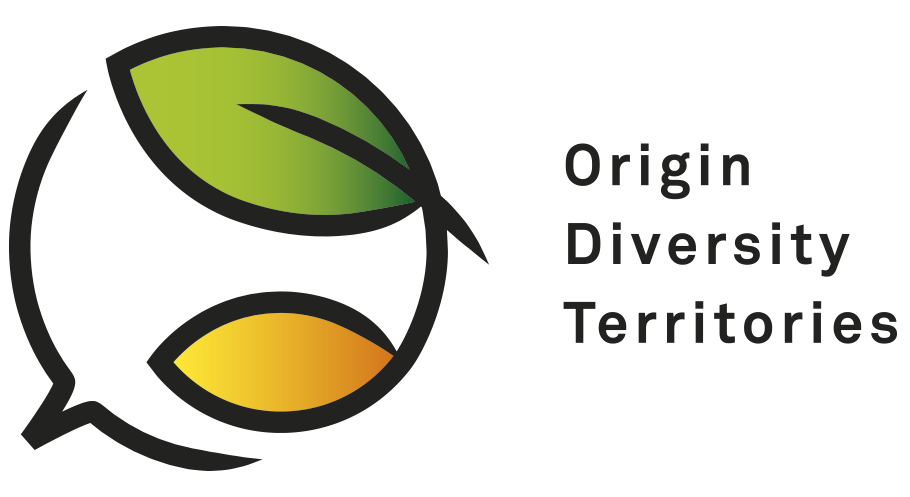Forum Origin, Diversity and Territories– 2019
AGROECOLOGY: Multiple Transitions of territories
Lausanne, 4 to 6 december 2019
Agriculture, territories and food systems are at the heart of sustainability issues. Food systems are affected by a range of transformations related to economic, social and environmental changes. Climate change, health impacts and environmental pollution are exerting strong pressure on agriculture. Hence, a new momentum is emerging at the international level for a profound agroecological transition.
Agroecology is an alternative for farmers themselves but also for consumers, citizens and policy makers. As agents of change, food system actors are experimenting new approaches based on biological and cultural diversity on a small and large scale in very diverse territories around the world, to overcome the overexploitation of natural and cultural resources. To ensure that the principles of agroecology can guide action, policy arbitration is driven by the action of civil society as a whole, represented by the scientific community, consumers and social movements.
The awareness of the current ecological impasse is triggering an active movement of civil engagement in favor of sustainable production and consumption patterns. Indeed, they are concerned not only with their environmental impact (sustainable organic production, other forms of agriculture that are particularly respectful of the environment, local consumption, etc.) but also with the enhancement of inter and intra-territorial diversity (regional products, labels and distinctive quality signs). More and more producers and consumers, wishing to be actors in this transition, consider that it is necessary to reconcile economic, ecological and solidarity aspects within the food system.
Some aspects of agroecology can be systematically reproduced in territories with different environmental conditions, such as biological control of crop pests, the use of weather warnings to trigger treatments, and application of organic compost to regenerate the soil. However, many natural factors influence the health of plants and animals, and local adjustments are needed to provide more and better quality of agroecological production so that it can replace conventional farming. The role of consumers and changes of scale in food processing and distribution are also key drivers of change.
The 7th edition of the Forum Origin, Diversity and Territories – ODT 2019 proposes to explore and put into perspective the theme of agroecology: Multiple Transitions of Territories. The ODT Forum is a unique learning experience, which will be held in 2019 between 4 and 6 December in Lausanne, in the canton of Vaud, Switzerland.
Through a rigorous selection process, we suggest to bring together territorial actors from countries of Africa, Eastern Europe, Latin America and Asia who are the promoters of local innovations that link the sectors of high quality agricultural and agri-food production in territories in ecological and social transition.
The theme of agroecology emerged frequently in the debates and discussions of previous Forums ODT, which focused in particular on the « role of diversity in territories in transition », « innovation in territories and resilience in food systems », « the right to food » and « family agriculture and biodiversity ».
During the Forum ODT 2019, concrete examples of small- and large-scale agroecological systems will be presented by scientists but also key actors from territories, farmers, consumers and development agents, and will be followed by exchange and debate sessions with international experts.
A plenary session will introduce the theme of the forum and then various workshops will take over. During this plenary session, the definitions of agroecology will be discussed from several angles in order to identify its different visions and its multiple dimensions, including how it relates to territories.
The objectives of the ODT 2019 Forum will be to discuss the following themes:
- Understanding and building reference frameworks around agroecology, its technical and social dynamics, and its mechanisms for disseminating knowledge and know-how.
- Tools to encourage the implementation of agroecological transitions in territories: identification of platforms, networks and tools that facilitate the implementation technical systems and innovative agroecological solutions by producers and their upstream and downstream partners.
- Planning and support for sustainable transitions at the territorial level: exchange of practices and methodologies in participatory planning and prospective, new models to guarantee sustainability and territorial management, conduct of learning in the mobilization of local actors.
- Distribution of agroecological agricultural products (marketing, trading, bartering): raise consumer interest in these products through innovative distribution systems, participatory guarantee systems (PGS), collective or individual labels, and modern communication tools (social networks, web media, etc.).
